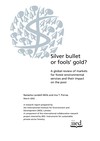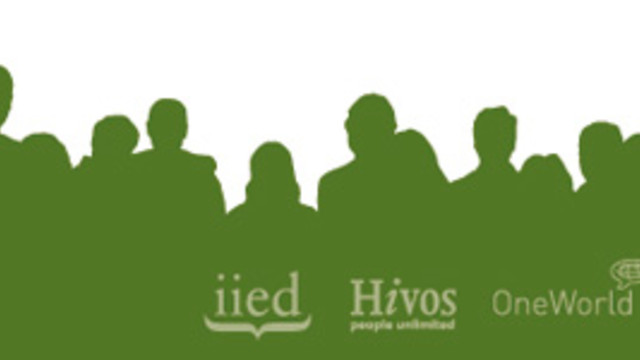Markets for environmental services case studies
This project explored how market-based approaches to environmental management can help reduce poverty, as well as satisfying economic and environmental aims.
Governments around the world increasingly rely on market-based policy instruments (MBIs) for environmental management, such as pollution taxes, water user fees or eco-tourism concessions to private firms. Private sector participation in supplying environmental goods and services is also growing in the global South.
When this project was conceived, the implications of these trends for poor countries, and for poor groups within countries, were unclear. Methods to assess the poverty impacts of market-based environmental policy were not well developed or widely used.
Similarly, it was not clear how to ensure that MBIs and new markets for environmental services contributed positively to poverty reduction. This meant there was an urgent need for practical guidance.
What IIED did
Building on previous work on private sector participation, IIED aimed to develop and test a general framework for analysing the environmental and poverty impacts of market-based approaches to environmental protection.
The goal was to point to possible win-win solutions, including through enterprises such as carbon trading, bio-prospecting, watershed protection contracts or eco-tourism. The framework focused initially on forest, water and wildlife resources, looking at recent initiatives to develop markets and other financial compensation mechanisms for environmental benefits (services) in rural areas of the developing world.
Research findings were targeted at developing country governments, private firms, donor agencies and other organisations working in the area.
Research covered two distinct areas, looking at markets for watershed protection services and at markets for environmental services generally.
Developing markets for watershed protection services and improved livelihoods
IIED's environmental economics and forestry and land use programmes worked together on this DFID-sponsored project to promote the maintenance of watershed services that support local livelihoods. The purpose was to increase understanding of the potential role of market-based approaches in promoting the provision of watershed services for improving livelihoods in developing countries.
This part of the project had three main components:
- Diagnostics were completed in the earlier inception phase in four sites: India, Indonesia, South Africa and the Caribbean.
- Case study research was completed in Costa Rica and Ecuador aimed at learning from contexts where experiences were particularly advanced and instructive and building up a knowledge base on what works under what conditions.
- Networking, developing guidance and dissemination took place throughout the project. An international network of interested, informed and action-oriented agencies was built through local learning groups in the action-learning sites, exchanges between case-study and action-learning sites, and international workshops. Information was also disseminated through working papers, case studies, policy briefings, diagnostics, and a final synthesis report.
Markets for environmental services in the Philippines, Brazil, Costa Rica, Ecuador and Bolivia
Support from the Shell Foundation, Danida and SDC was valuable in allowing IIED's environmental economics programme to extend the focus of the project beyond watershed markets to a broader set of services.
The work involved collaborative research with partners in Brazil, Costa Rica, Ecuador and the Philippines to assess local experience with markets for environmental services and explore how to improve ongoing initiatives.
These countries were selected on the basis of the relative maturity of market initiatives, and thus the likelihood of obtaining sufficient empirical data to assess their impacts, as well as the commitment and capacity of local partners to contribute to both the research and potential follow-up. This work included field-testing methods to assess the equity impacts of markets.
The results of the work were published in a global review of emerging markets based on 287 cases from both developed and developing countries.
Additional support for this work was provided under another IIED project, Instruments for sustainable private sector forestry, funded by the UK's Department for International Development and the European Commission. This resulted in a series of publications, including theme papers on privatising sustainable forestry, certification, company-community partnerships and markets for environmental services, as well as case studies from several countries. These were collected on a CD-ROM, Instruments for Sustainable Private Sector Forestry.
Publications
Additional resources
Instruments for Sustainable Private Sector Forestry, IIED (2005), CD-ROM (available on request)




